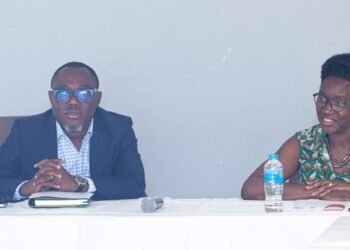The Independent National Electoral Commission (INEC) is to begin a national conversation on the management of electoral process with various stakeholders over the next two months.
The plan is to reform the electoral process to discourage the do-or-die attitude of political actors, which was brazenly exhibited during the 2019 general election, as well as to address the inability of the country’s laws to penalise electoral offenders.
INEC Chairman, Prof. Mahmood Yakubu, spoke on the planned engagement with stakeholders in Abuja at a meeting with the Resident Electoral Commissioners (RECs), the first meeting since the conclusion of the 2019 elections.
The commission also said recommendations from the national conversation would lead to the reformation of the electoral process, while also taking into consideration the reports of previous committees on electoral reform.
Yakubu said the planned engagement was in fulfilment of the commission’s promise to review all the processes and procedures for the 2019 general election in full consultation with stakeholders, stressing that the commission is convinced that there should be a major national conversation on the management of the country’s electoral process.
He said the process must be qualitatively different from what was done in the past and benefit from all previous efforts at reform.
He added that yesterday’s meeting with the RECs was the first in the series of engagements within the commission and with all stakeholders.
He said: “We are convinced that until we get our electoral process on the right, consistent and progressively positive trajectory, our efforts at nation-building and promoting peace and progress shall remain epileptic. No doubt we have made progress since 1999, but a lot of work still lies ahead.
“Over the next two months, the commission plans to engage with all stakeholders, beginning with a root and branch review involving our own officials at local government and state levels, ranging from Electoral Officers (EOs), Administrative Secretaries (ASs), Heads of Department (HoDs) and representatives of ad hoc officials engaged for elections from presiding officers at polling unit level to collation and returning officers.
“We shall then follow it up with consultations at the national level with political parties, the security agencies, civil society organisations, the media, development partners, traditional and religious organisations, the national and local peace committees and professional groups accredited to observe elections. Details of the series of activities and timelines will be finalised at this meeting and made public immediately.”
According to him, the conversation will be structured around the following critical issues among which are political parties – number, mode of registration, internal democracy, accreditation of party agents, and logistics- movement and security of personnel and materials.
Others are ICT- related issues ranging from the configuration and deployment of technology, including the recruitment, training and deployment of technical support.
Yakubu said there was need to have an informed conversation on the use of technology to deepen the electoral process.
The conversation, Yakubu said, would also cover election security focusing on the relationship between INEC and the security agencies, the effectiveness and impact of election risk assessment methods, deployment and conduct of security personnel; including, the electoral legal framework and the necessity for a comprehensive, dispassionate and early conclusion as well as the passage of any constitutional and electoral act amendments





























































